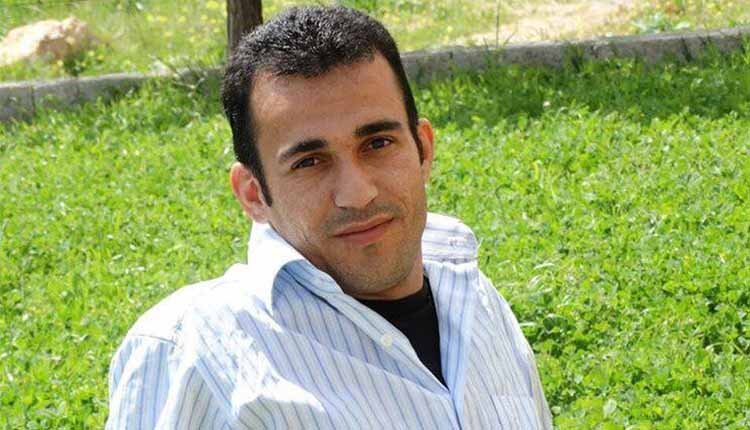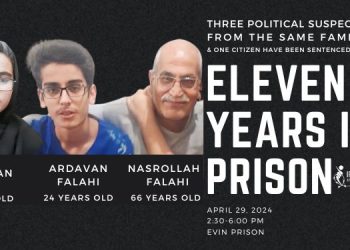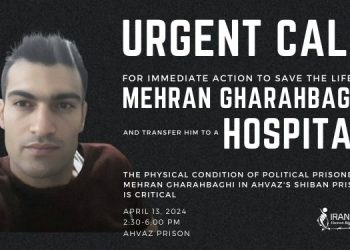The case of Ramin Hossein Panahi, political prisoner in death row at Sanandaj Central Prison, has been sent to the Bureau for Execution of Decrees and he is now one step closer to the gallows.
His lawyer and family were informed on Thursday, May 17, 2018 that his file has been sent to branch four of this bureau in Sanandaj’s Revolution Court after it has been sent back from branch 39 of Supreme Court, to be carried out.
Prison officials summoned Ramin Hossein Panahi on 19 May informing him that his execution will be carried out after 15 June, when the Muslim month of Ramadan ends.
Ramin Hossein Panahi’s execution was previously scheduled for 3 May and he was transferred to solitary confinement in preparation for it. However, following a public outcry, the authorities postponed the execution and returned him to the prison’s general ward.
Amnesty International issued an urgent action today, May 21, calling on Iranian authorities to immediately halt plans to carry out the execution of Ramin Hossein Panahi. The statement reads in part; “Iranian Kurdish prisoner Ramin Hossein Panahi, sentenced to death in January 2018, is at imminent risk of execution. The Office for Implementation of Sentences has said that his execution will be carried out soon after the end of the Muslim month of Ramadan on 15 June. He was convicted and sentenced to death after a grossly unfair trial.”
Amnesty International further added; “Ramin Hossein Panahi, a 22-year-old man from Iran’s Kurdish minority, was convicted and sentenced to death after a grossly unfair trial on 16 January that lasted less than an hour. His family told Amnesty International that he appeared before the Revolutionary Court in Sanandaj with torture marks on his body, but that the court failed to order an investigation into his claims that he had been forced to “confess” to the crime. According to his lawyer, the court convicted and sentenced him to death for “taking up arms against the state” (baqi) merely based on his membership of the banned Kurdish opposition group Komala. No specific evidence was provided linking him to activities involving intentional killing, which is the required threshold defining the “most serious crimes” to which the use of the death penalty must be restricted under international law. Between his arrest and trial, he was allowed one brief meeting with his lawyer, which took place with intelligence officials present. The Supreme Court upheld the conviction and death sentence in March 2018.”











